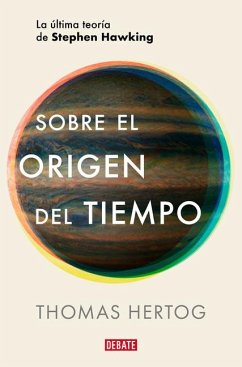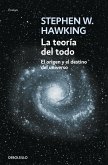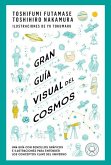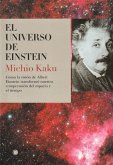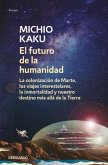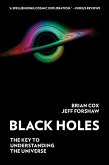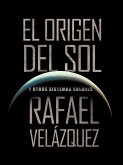El último discípulo de Stephen Hawking presenta los más recientes descubrimientos del astrofísico sobre el universo. «Un libro maravilloso sobre el mayor legado de Stephen Hawking'. -The Spectator Quizá la cuestión más importante que Stephen Hawking abordó en su extraordinaria carrera fue cómo el universo pudo desarrollar las condiciones perfectas para que surgiera la vida. Buscó respuesta en los orígenes del big bang, pero esos trabajos tempranos entraron en crisis, ya que las matemáticas apuntaban hacia la existencia de numerosos big bangs que originaban universos incompatibles con la vida. Encerrados en el departamento de Física teórica de Cambridge, el célebre astrofísico y su amigo y colaborador Thomas Hertog dedicaron veinte años a intentar resolver este enigma y plantear una nueva teoría del cosmos que pudiera explicar el origen de las formas de vida. Al retroceder mucho más en el tiempo, les sorprendió encontrar un nivel más profundo de la evolución en el que las propias leyes físicas se transforman y simplifican hasta que las partículas, las fuerzas e incluso el propio tiempo se desvanecen. Este descubrimiento los llevó a una idea revolucionaria: las leyes de la física no están grabadas en piedra, sino que nacen y evolucionan a medida que el espacio que rigen va tomando forma. Poco antes del fallecimiento del popular físico teórico, la pareja de investigadores publicó su teoría, que proponía una nueva y radical perspectiva darwinista sobre los orígenes de nuestro universo. Sobre el origen del tiempo está llamado a transformar profundamente la forma en la que entendemos nuestro lugar en el cosmos y, en última instancia, puede convertirse en el mayor legado de Hawking. ENGLISH DESCRIPTION NEW YORK TIMES BESTSELLER - Stephen Hawking's closest collaborator offers the intellectual superstar's final thoughts on the cosmos--a dramatic revision of the theory he put forward in A Brief History of Time. "This superbly written book offers insight into an extraordinary individual, the creative process, and the scope and limits of our current understanding of the cosmos."--Lord Martin Rees Perhaps the biggest question Stephen Hawking tried to answer in his extraordinary life was how the universe could have created conditions so perfectly hospitable to life. In order to solve this mystery, Hawking studied the big bang origin of the universe, but his early work ran into a crisis when the math predicted many big bangs producing a multiverse--countless different universes, most of which would be far too bizarre to harbor life. Holed up in the theoretical physics department at Cambridge, Stephen Hawking and his friend and collaborator Thomas Hertog worked on this problem for twenty years, developing a new theory of the cosmos that could account for the emergence of life. Peering into the extreme quantum physics of cosmic holograms and venturing far back in time to our deepest roots, they were startled to find a deeper level of evolution in which the physical laws themselves transform and simplify until particles, forces, and even time itself fades away. This discovery led them to a revolutionary idea: The laws of physics are not set in stone but are born and co-evolve as the universe they govern takes shape. As Hawking's final days drew near, the two collaborators published their theory, which proposed a radical new Darwinian perspective on the origins of our universe. On the Origin of Time offers a striking new vision of the universe's birth that will profoundly transform the way we think about our place in the order of the cosmos and may ultimately prove to be Hawking's greatest legacy.
Bitte wählen Sie Ihr Anliegen aus.
Rechnungen
Retourenschein anfordern
Bestellstatus
Storno

